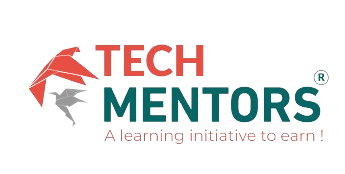Introduction
Welcome to the era of Personalized Medicine, where healthcare isn’t one-size-fits-all anymore—it’s all about you. In this beginner-friendly guide, we’ll uncover what Personalized Medicine is all about and how it’s changing the way healthcare works.
Personalized Medicine is like having a healthcare plan customized just for you. Instead of relying on generic treatments, doctors now use your unique characteristics—like your genes, lifestyle, and environment—to create a plan that suits you best.
Imagine if your doctor could predict which treatment would work best for you before even trying it. That’s the magic of Personalized Medicine. By analyzing your genes and other factors, doctors can choose the right treatments, saving time and reducing side effects.
What is Personalized Medicine?Here
Think of personalized medicine like a custom-made suit that fits you perfectly. Instead of a one-size-fits-all approach, personalized medicine takes into account your unique genetic makeup, lifestyle, and medical history to provide treatments that are specially designed for you. It's like having a healthcare plan that's as unique as your fingerprint!
The Power of AI in Healthcare Diagnostics
Now, imagine having a super-smart assistant who can analyze tons of medical data in the blink of an eye. That's where AI comes in! AI uses its incredible brainpower to sift through mountains of medical information, including patient records, lab results, and research studies, to help doctors make faster and more accurate diagnoses
Faster Diagnoses, Better Outcomes
With AI on the team, doctors can make diagnoses faster than ever before. AI algorithms can spot patterns and trends in medical data that might not be obvious to the human eye, helping doctors identify diseases and conditions at an earlier stage when they're easier to treat. This means better outcomes for patients and more lives saved!
Predicting the Future: How AI Helps Prevent Disease
Wouldn't it be remarkable if health issues could be predicted before they manifest? Well, with AI, we're edging closer to making that a reality! AI-driven predictive analytics can analyze your medical history and lifestyle factors to ascertain your risk of developing certain diseases, enabling doctors to intervene early and aid in maintaining your well-being.
Tailored Treatments: The Beauty of Precision Medicine
When it comes to treating diseases, one size definitely doesn't fit all. That's where precision medicine comes in. AI can analyze your genetic makeup and other factors to determine which treatments are most likely to work best for you, minimizing side effects and maximizing effectiveness. It's like having a treatment plan that's custom-made just for you!
Breaking Down Barriers: How AI is Making Healthcare More Accessible ecision Medicine
In many parts of the world, access to quality healthcare is limited. But with AI, we have the potential to bridge that gap. AI-powered diagnostic tools can be used remotely, allowing patients in rural or underserved areas to get the care they need without having to travel long distances. It's like bringing the doctor's office to your doorstep!
The Future of Healthcare: Where AI and Medicine Meet
As we look to the future, the possibilities of AI in healthcare diagnostics are truly endless. From earlier diagnoses and personalized treatments to predictive analytics and remote care, AI has the potential to revolutionize the way we think about healthcare. With continued research and innovation, we can unlock the full potential of AI to improve health outcomes for people around the world.
Conclusion: A New Era of Personalized Healthcare
In conclusion, AI is ushering in a new era of personalized medicine and transforming healthcare diagnostics as we know it. With its incredible ability to analyze vast amounts of medical data and tailor treatments to individual patients, AI has the power to revolutionize the way we approach healthcare. As we continue to harness the potential of AI, we can look forward to a future where healthcare is not only more effective and efficient but also more personalized and accessible than ever before.


